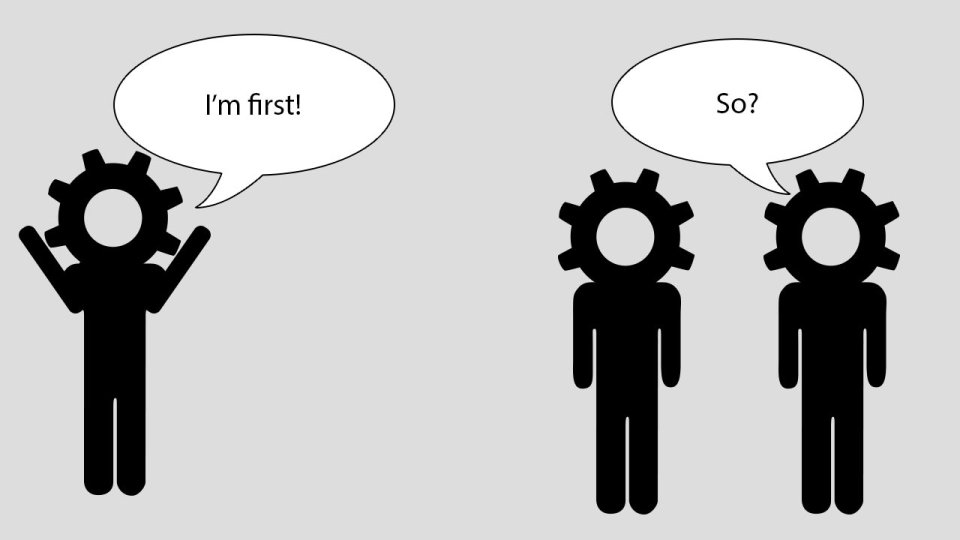Sometimes, when you read a post comment section, the first comment will only be, "First!" And all I could think was why? It serves no purpose other than to waste your time posting it. You don't win anything for being the first to post a comment either. Nor should you. It just tells people you have nothing better to do. There's nothing remarkable about being first in life anyway. Usually, "the first" is where all the mistakes are made. Ask most parents, and they'll tell you they made most of their mistakes with their first kid. With any new product, the first version is always the one with the most bugs. It's better to come along later.
Commenting with one word is terrible. It's worse when it's trying to be an actual take on something. Twitter is probably most known for this. Everyone wants to be the first to get in their two cents. Making it even harder is the character count restrictions. It's difficult to articulate something intelligent when you are limited to 280 characters. These sites and apps encourage people to say the first thought that pops into their heads without any thinking or research whatsoever.
A few weeks ago, the Ever Given ship famously became stuck in the Suez Canal. In a video posting, a reporter said the name Ever Given a few times. It was in the video caption and the post. Several people began tweeting they needed to check their work. The ship clearly says Evergreen. I know shipping containers usually have the name of the shipping company on them. I've vaguely heard of Evergreen before as well as Maersk. Curious as to what Ever Given was referring to, I did a Google search to find out Ever Given was the name of the particular container ship type operated by Evergreen. The search didn't take more than a few minutes. The most disturbing thing about this is the people tweeting thought they knew more about the ship by simply looking at a photo than a journalist who spent hours researching it and undoubtedly contacted someone who works for the shipping company or canal. Yet, the commentators on Twitter believed they were right and knew better simply by reading the photo. I do not see how any sane person could logically come to that conclusion.
Another example is the student with the red MAGA hat standing next to a Native American elder. When I first saw the image, I did not react. I thought it was interesting, but I had no context for it. Without knowing more about it, there's no way I could comment on it. It turns out there was a video, but it still didn't provide enough context to the event. Yet thousands of people thought they knew enough to give their two cents as the internet lit up with comments and theories. Most said the student was harassing the elder. Shockingly, it turned out most people were wrong. The elder had come over to try and diffuse the situation between the students and another group. But the school and their students and chaperones suffered a severe backlash from the initial reactions. Other Native Americans said this is what usually happens to them. I don't know why the full video took so long to get out. After seeing the full video, most said it absolved the students from any blame. Although a few still thought the student disrespected the elder. Trying to comment on something when you are uninformed benefits no one.
I love to say I'm always 90% right. I say that because I only comment on something if I'm 90% sure I know what I'm talking about. Otherwise, I say I don't know, I don't have enough information, or I say nothing. Most people would be wise to do that too. Lack of self-awareness and lack of sufficient knowledge are the biggest obstacles preventing that. They just always assume they know or want it to appear that way.
Instead of trying to be first, try to be correct. And that doesn't mean simply assuming you are right. Do the research first.
